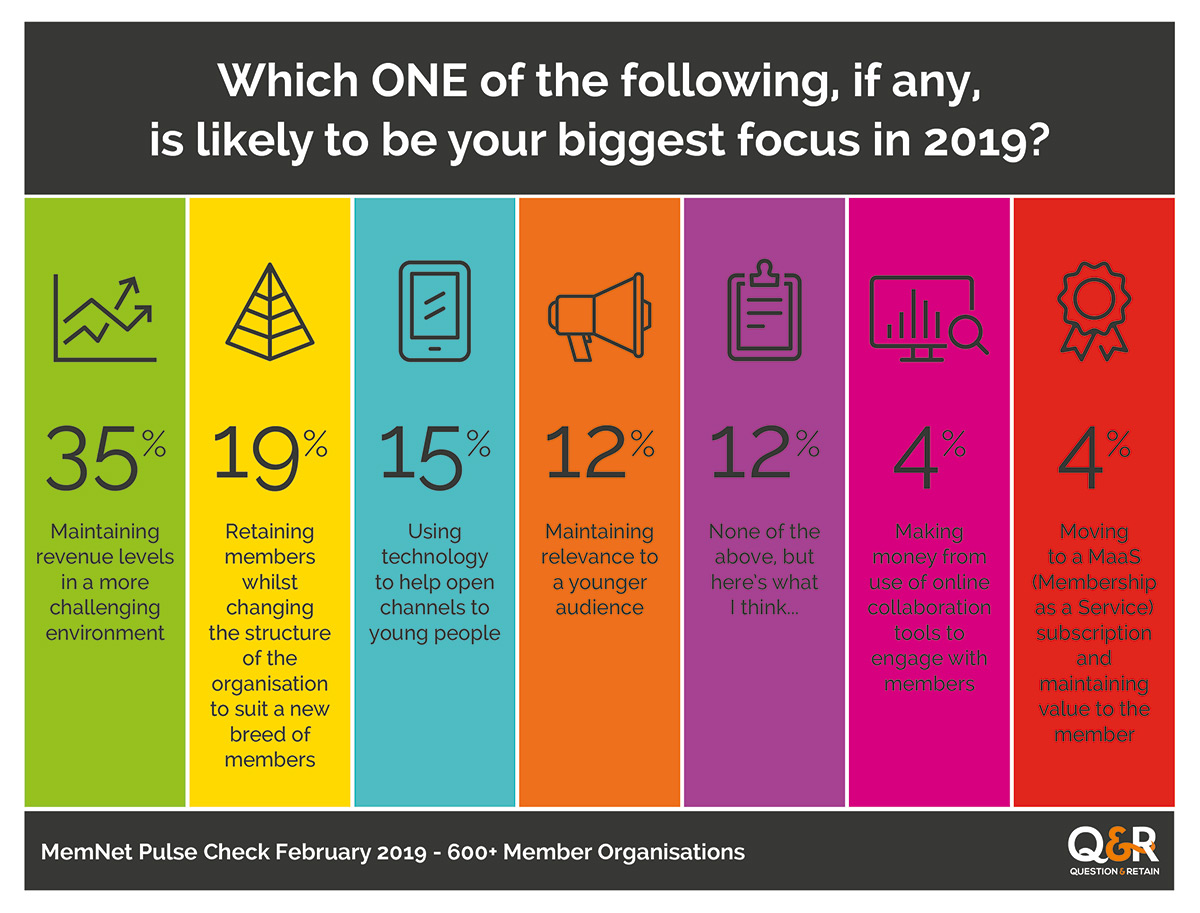Next Generation Membership
In our recent Pulse Check of 600+ membership
One respondent commented: “Being a membership organisation is holding us back as people are not keen on joining a national entity. People want to participate locally and be part of a community paying for services as they go, but not part of a national body. Member numbers are likely to decrease and we are only just about stable as we have a core of loyal members.”
So, is membership as we know it dead? It is clear future proofing is the challenge.
This theme dominated the recent MemNet National Conference held on 27th February. Next generation membership was mooted by Sue Froggatt, MD, Sue Froggatt, Training and Consultancy, with strong empathy among the audience for moving towards an association model.
People are most drawn to a cause and want to feel part of something, but very much on their own terms. Just look at the speed with which recent ‘associations’ have formed and grown e.g. #MeToo.
Creating something that draws people in, that is fun, inclusive and relevant, is the way forward. The key is to establish the value and build a fan club, and only then can the revenue model can be structured accordingly.
James Jeynes, Chief Executive, MemNet, illustrated the association model with a case study of how the golfing sector has adapted by offering pay as you go golf supported by an app and Facebook groups to take bookings and create a sense of community. Club houses are now taken over by external caterers and the pro shop has become the hub for getting advice and buying kit. The elite members only golf clubs that once boasted waiting lists and sky high membership fees, are having to evolve in order to attract a younger demographic to ensure the longevity of the club.
Amanda Watkin General Secretary, Rotary GB and Ireland, described how they are taking a multi-generational approach to ensure the longevity of the organisation. Using social media and digital channels tailored to a wide variety of audiences from young to old has helped Rotary to appeal to its core loyal members as well as attracting new blood.
Dr. Mark Downs, Chief Executive, Royal Society of Biology, shared how they have sparked and maintained interest among school children through eye-catching competitions and curriculum relevant materials for teachers.
Brian Berry, Chief Executive, Federation of Master Builders (FMB), was interviewed by Annabel Dunstan, CEO, Question & Retain, and resonated with the challenges faced by other member organisations. Ensuring the importance of high standards message is given loud and clearly to builders has helped drive membership. His on-going challenge is to communicate the value of a master builder, who has to be vetted and inspected to become an FMB member, to consumers.
Annabel Dunstan, comments,
“It is clear switched on membership leadership teams are re-thinking the membership model in order to stay relevant and attract new members. Identifying the value is the key to unlocking how to future-proof member orgs and those that ignore this, do so at their peril. The boiling frogs fable springs to mind.”

For a full set of verbatim comments for the above Pulse Check please email tellmemore@questionandretain.co.uk
